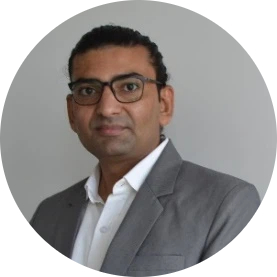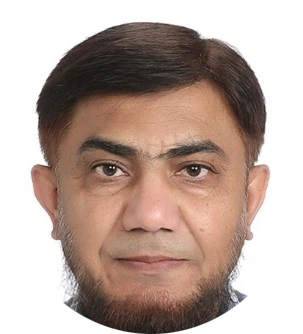 Assoc. Prof. Manoj Kumar
Assoc. Prof. Manoj Kumar
University of Wollongong, Australia
Dr. Kumar completed his Ph.D. from Northcap University and
M.Sc. (Information Security and Digital Forensics) from
Technological University Dublin, Ireland in 2013. Dr. Kumar has
more than 15 years of research, teaching, and corporate
experience.
Currently, Dr. Kumar holds the position of Associate Professor
at the University of Wollongong in Dubai. In addition, he serves
as the Research Cluster Head for Network and Cyber Security
@UOWD. Dr. Kumar is listed among the top 2% of computer
scientists worldwide. He published over 280 research articles in
international refereed journals and conferences. He published
over 12 patents, completed 10 research-funded grants, and
released 3 authored and 16+ edited books.
Three students have successfully completed their Ph.D. research
under Dr. Kumar’s supervision, and four more are currently
pursuing their doctoral studies under his guidance. He has
organized six international conferences in collaboration with
reputed publishers such as IEEE, Taylor & Francis, and Springer.
Dr. Kumar has also delivered more than 20+ keynote talks at
international conferences and has conducted several short-term
courses and FDPs.
In addition, he acts as an editor, associate editor, guest
editor, and editorial board member for several scientific
journals. Dr. Kumar is a member of numerous renowned
professional bodies, including IEEE, ACM, IAENG, ISTS, and
UACEE. Dr. Kumar received the Best Researcher Award in 2020, an
Outstanding Scientist Award, and a Young Researcher Award in
2021 from recognized international professional bodies. His
specializations are Cyber Security, Intelligent Systems, Digital
Forensics, Artificila Intelligence, Image Processing, IOT and
Networks.
 Assoc. Prof. Shintaro Oyama
Assoc. Prof. Shintaro Oyama
Nagoya University, Japan & University of the Ryukyus, Japan
Shintaro Oyama is an Associate Professor at the Center for
Preventive Medical Engineering, Nagoya University, and a
Specially Appointed Associate Professor at the Center for
Advanced Medical Research, University of the Ryukyus. He
graduated from Nagoya University School of Medicine in 2007 and
trained as an orthopedic and hand surgeon before joining RIKEN
in 2013, where he conducted research in imaging informatics and
optical quantum engineering. After earning his PhD in 2017, he
led digital transformation initiatives, including the Smart
Hospital Project, at Nagoya University Hospital. His work spans
clinical AI, IoT-based workflow optimization, and
community-oriented digital health solutions, collaborating with
industry and government projects such as SCOPE and NICT. He has
been instrumental in AI education programs across medical
fields. Since 2025, he also serves as Deputy Director of the
Startup Promotion Office at the Tokai National Higher Education
and Research System.
 Assoc. Prof. Mahammad Tariq Mahmood
Assoc. Prof. Mahammad Tariq Mahmood
Korea University of Technology and Education, South Korea
Muhammad Tariq Mahmood is an Associate Professor in the School
of Computer Science and Engineering at Korea University of
Technology and Education (KOREATECH), Cheonan, Korea. He earned
his MCS in Computer Science from AJK University, Pakistan, in
2004, an MS in Intelligent Software Systems from Blekinge
Institute of Technology, Sweden, in 2006, and a PhD in
Information and Mechatronics from Gwangju Institute of Science
and Technology (GIST), Korea, in 2011. Prior to academia, he
accumulated over eight years of industrial experience as a
Software Engineer at Khaksar and Co., Islamabad. He has led
multiple research projects as Principal Investigator funded by
the National Research Foundation of Korea, with emphasis on
shape-from-focus and defocus, smart city technologies, and
underwater imaging. He has authored more than 150 peer-reviewed
journal and conference publications. His research interests
include image processing, computer vision, depth estimation, and
machine and deep learning.
 The 14th International Conference on Computer and Communications Management
The 14th International Conference on Computer and Communications Management